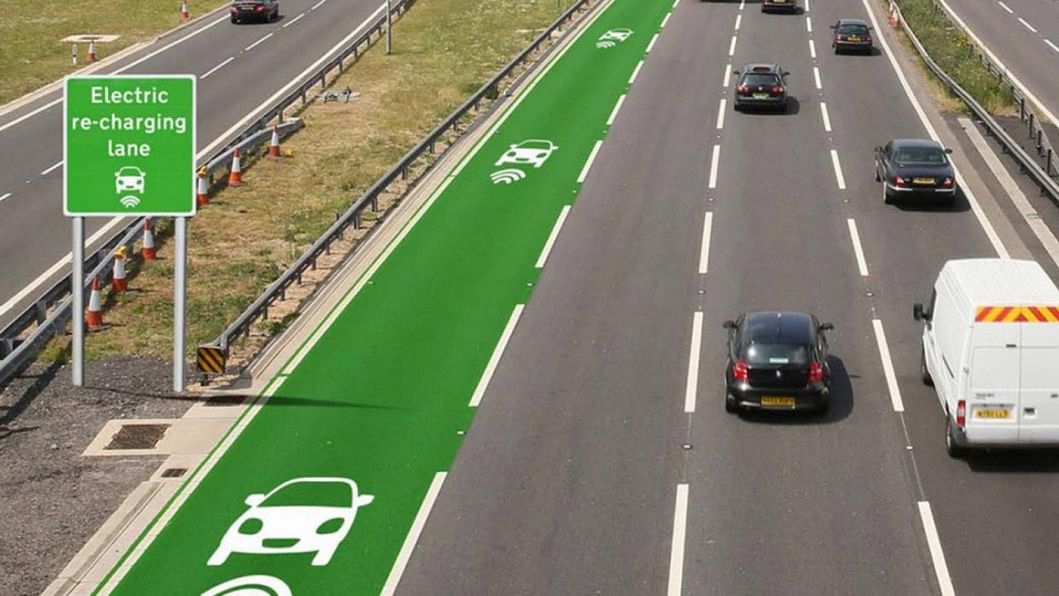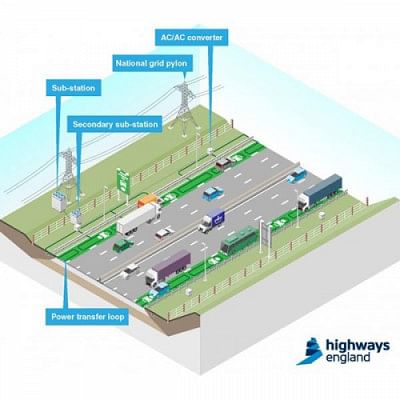Recharge your car on the road!

A trial in England is hoping to significantly boost the range of electric cars by introducing roads that can charge the vehicles as they drive along them, reports Mashable.
Unless you happen to own a Tesla and live near a supercharging station, the current battery life of electric cars doesn't go incredibly far. While electric cars may get 260 miles to a full charge, gas-guzzling cars can get 300 miles or more.
Highways England announced last week that it is embarking on an 18-month scheme to trial charging lanes after completing an early feasibility study. (The testing won't be on public roads just yet, though.)
During the trials, vehicles will be fitted with wireless technology and special equipment will be installed beneath roads to replicate motorway conditions. Electric cables buried under the surface will generate electromagnetic fields, which will be picked up by a coil inside the device and converted into electricity, reports Mashable.
The trial is set to take place later this year; full details will be revealed once a contractor has been appointed. There will be a potential follow up on real roads.
Transport minister Andrew Jones says that "the government is already committing £500 million over the next five years to keep Britain at the forefront of this technology."

This isn't the first trial of its kind. In South Korea, a 7.5-mile (12 km) stretch of road charges up electric buses as they drive along, via a process called Shaped Magnetic Field in Resonance (SMFIR) reports Mashable.
In England, a trial in Milton Keynes saw buses charged wirelessly through plates in the road, but they had to stop moving to receive the juice.
But this new scheme is a lot more ambitious and potentially game-changing. Some skeptics have spoken out against the scheme; Dr Paul Nieuwenhuis, the director of Cardiff Business School's Electric Vehicle Centre of Excellence, told the BBC that "it sounds very ambitious to me. Cost will be the biggest issue and I'm not totally convinced it's worth it."
Pointing out improvements in battery technology, Nieuwenhuis questioned whether there would ever be a need for such roads.

 For all latest news, follow The Daily Star's Google News channel.
For all latest news, follow The Daily Star's Google News channel. 



Comments